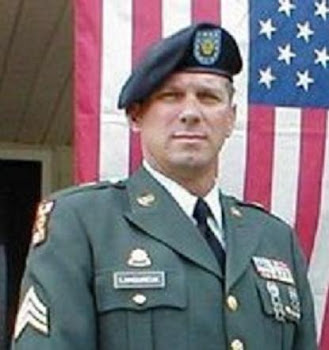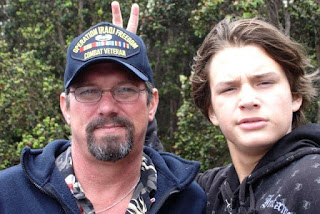The Charleston Gazette
August 12, 2010
By Veronica Nett
CHARLESTON, W.Va - The suicide rate among military veterans has ballooned in recent years, in part because of overmedication of service members and a lack of support for veterans, advocates for treatment of Post Traumatic Stress Disorder said Thursday.
Psychiatrists sometimes prescribe drugs as a cure without an actual understanding of what the drugs do, said Dr. Peter R. Breggin, a psychiatrist and author from Ithaca, N.Y.
In 2008, the Army's suicide rate -- 20.2 per 100,000 -- exceeded the civilian suicide rate for the first time. The civilian suicide rate has held steady for years at about 18 per 100,000, according to the U.S. Department of Defense.
Breggin and seven panelists addressed a crowd of about 50 therapists, social workers, members of the state Veterans Affairs department, in addition to service members and their families at the 2010 PTSD and Traumatic Brain Injury Education and Awareness Conference.
Care-Net, a branch of the state Council of Churches, sponsored the conference at the Blessed John XXIII Pastoral Center in Charleston.
PTSD is the brain's natural reaction to extreme stress and traumatizing experiences, said Breggin, the conference's keynote speaker. Tramuatic brain injury looks just like PTSD, he said.
"There is no drug that improves the function of the brain," said Breggin, who said he will not prescribe psychiatric drugs as treatment for any disorder.
Psychiatric drugs, such as antidepressants and anxiety medication, alter the chemical balance in the brain, disrupt the release of serotonin and, in many cases, have the same effect as street drugs, Breggin said.
Patients using psychiatric drugs have experienced psychotic and violent behavior, attempted suicide and are unable to think clearly, Breggin said.
Mary Lahas talked about her son, Michael, who she said stuck IV needles into his arms in a suicide attempt.
Her son, an Army infantry member, survived roadside bomb explosions, and witnessed the shooting death of civilians in Iraq, Lahas said Thursday.
He returned from his first deployment in 2008 with PTSD and TBI and suffered from headaches, anxiety, guilt, tinnitus and memory problems, Lahas said. He refused to seek help, she said, because he saw other soldiers ridiculed who did.
When he finally did seek help, he was given a "cocktail of death," that included antidepressants, anxiety medications and sleep aids, Lahas said.
"He was so over-medicated he could not care for himself -- eat, sleep or brush his teeth," she said.
The drugs and stress led him to try to take his own life, and while standing in his bathroom bleeding, he drew a smiley face on the wall in his own blood, she said.
Her son's wife found him and called for help. He was sent to a civilian clinic where he was diagnosed with PTSD. The military never diagnosed him with PTSD, just said that he had similar symptoms, she said.
"We gave them a normal teenager and they gave back a broken soldier that looked like a concentration camp survivor," Lahas said.
The U.S. Department of Veterans Affairs has estimated that more than 6,000 veterans from past and ongoing conflicts will commit suicide this year.
Sue Lamoureux's blog for her husband, J Patrick Lamoureux. Sue died on 24 August 2015.
PAT LAMOUREUX

PAT LAMOUREUX - One episode in a person's life, does not define the person.
Friday, August 13, 2010
Subscribe to:
Comments (Atom)
"Grandpa Pat & Kain"

"Kain-man" the jokester....
Pat Lamoureux - Iraq 2003

"Pat is an extraordinary, thoughtful, kind and generous man...not to mention a wonderful friend, in which one could always count upon to be there when in need." (words of a long time friend)
Pat's Family

Mica & Heather, grandson Kain